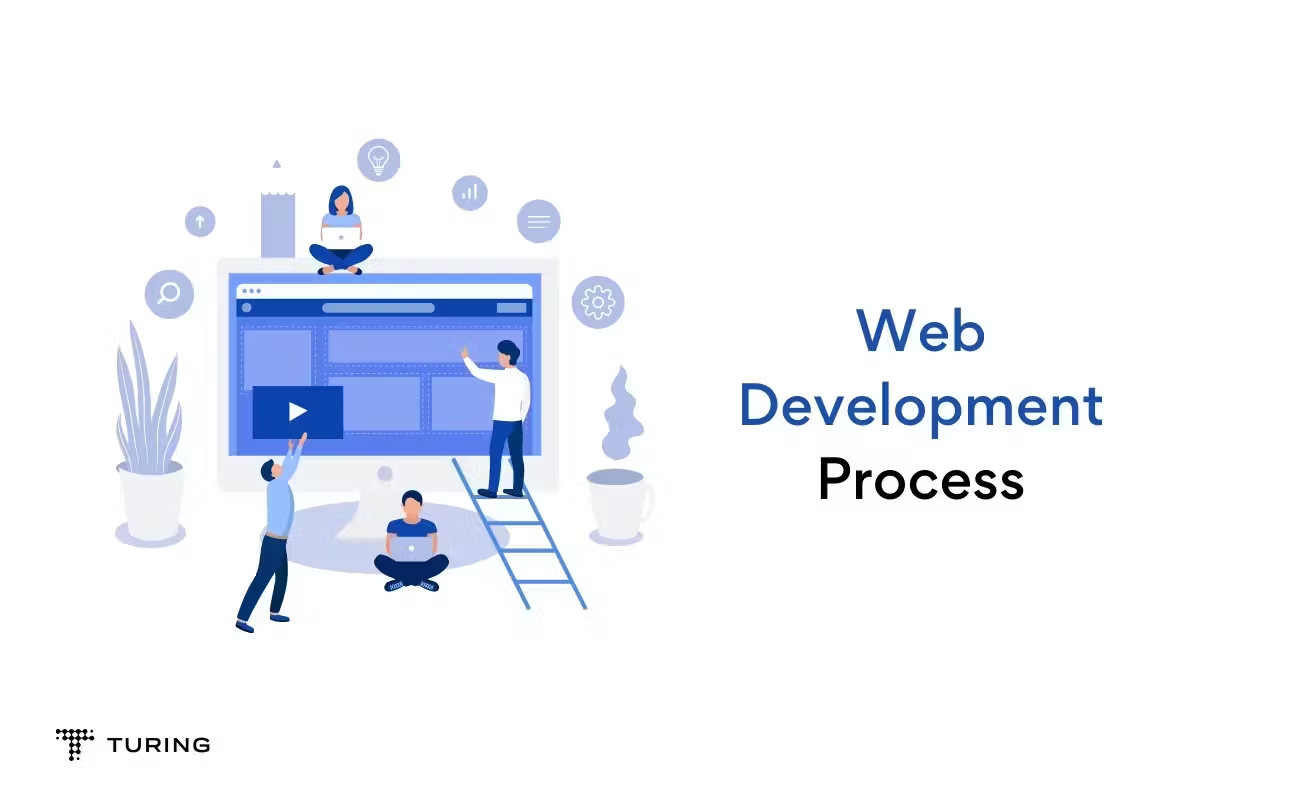Web development services encompass a wide range of services involved in creating, designing, maintaining, and improving websites and web applications. These services typically fall into several categories:

1. Website Design and UI/UX Design
- UI Design (User Interface): This includes designing the visual layout, elements, and interactions that users engage with on a website.
- UX Design (User Experience): Focuses on the overall experience of the user, including how easy and intuitive the site is to navigate.
- Wireframing and Prototyping: Creating blueprints or initial designs of a website before development.
- Responsive Design: Ensuring the website works seamlessly on different devices (desktop, tablet, mobile).
2. Front-End Development
- HTML/CSS: The basic structure and styling of web pages.
- JavaScript: Adding interactivity and dynamic content on the front-end, such as animations, form validations, etc.
- Frameworks/Libraries: Use of tools like React, Angular, Vue.js, and Bootstrap to speed up and improve the development process.
- Cross-Browser Compatibility: Ensuring the site functions well on all browsers (Chrome, Firefox, Safari, etc.).
3. Back-End Development
- Server-Side Scripting: Programming languages like PHP, Python, Ruby, or Java to manage databases, user authentication, and business logic.
- Database Management: Integration with databases like MySQL, PostgreSQL, MongoDB, or others to store and manage data.
- API Development: Creating Application Programming Interfaces (APIs) for interaction between the front-end and back-end or other services.
4. Full-Stack Development
- Combines both front-end and back-end development to create complete, end-to-end solutions.
- Technologies like Node.js, MERN stack (MongoDB, Express, React, Node), and MEAN stack (MongoDB, Express, Angular, Node).
5. E-Commerce Development
- E-Commerce Platforms: Development of online stores using platforms like Shopify, WooCommerce, Magento, or custom solutions.
- Payment Gateway Integration: Implementing secure payment processing systems (PayPal, Stripe, etc.).
- Product Management and Inventory Systems: Systems for managing products, orders, and customers.
6. Content Management Systems (CMS) Development
- Building or customizing CMS platforms like WordPress, Drupal, Joomla, or custom-built systems for easy content editing and management.
- Integration with plugins, themes, and templates for faster development.
7. Web Application Development
- Development of interactive and data-driven web applications, ranging from social media platforms to business management tools.
- Use of frameworks like Django, Flask (Python), Laravel (PHP), and others to create complex web applications.
8. Website Maintenance and Support
- Regular updates to ensure the website stays secure, compatible with new browsers, and functions properly.
- Performance optimization, bug fixes, security patches, and content updates.
9. Search Engine Optimization (SEO)
- On-page and off-page SEO strategies to improve a website’s search engine rankings.
- Optimization of site structure, content, metadata, and backlinks to drive organic traffic.
10. Website Security
- Implementing SSL certificates, firewalls, and security protocols to protect a site from hackers.
- Regular vulnerability scans, securing data transactions, and ensuring privacy compliance (e.g., GDPR).
11. Hosting and Domain Services
- Web Hosting: Providing server space and infrastructure for websites to be accessible on the internet.
- Domain Registration: Helping clients acquire domain names for their websites.
- Cloud Hosting: Offering scalable solutions with cloud providers like AWS, Google Cloud, or Microsoft Azure.
12. Web Analytics and Reporting
- Integration with tools like Google Analytics to track visitor behavior and site performance.
- Generating detailed reports to understand user interactions, traffic, and conversion rates.
13. Custom Web Development
- Creating unique, tailored websites or applications based on specific business needs or objectives, such as a booking system, social network, or internal enterprise platform.
14. Progressive Web App (PWA) Development
- Developing websites that act like mobile apps, offering offline capabilities, push notifications, and improved performance.
- If you’re looking for web development services, it’s essential to consider the specific needs of your business, such as whether you need a simple brochure site, an e-commerce platform, or a complex web application. Understanding the different types of services will help you choose the right partner and technology stack for your project.